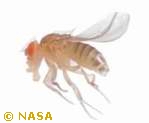Sunday, August 27, 2006
Study finds how organs monitor themselves during early development
 New York, August 27, 2006 - How are you? In biological terms this question could involve a feedback loop that lets the body check in on itself and then act on that information. Although feedback loops are essential and they abound in biology, they aren't well understood. Feedback loops enable an organ such as the liver to detect if it is injured, ascertain if it is growing and developing normally, and if it needs to regenerate itself. When such loops derail, cancer and other diseases can arise.
New York, August 27, 2006 - How are you? In biological terms this question could involve a feedback loop that lets the body check in on itself and then act on that information. Although feedback loops are essential and they abound in biology, they aren't well understood. Feedback loops enable an organ such as the liver to detect if it is injured, ascertain if it is growing and developing normally, and if it needs to regenerate itself. When such loops derail, cancer and other diseases can arise.
Scientists at NYU School of Medicine have unraveled the signals in a feedback loop governing ovarian development. This work has been several years in the making and is being published on 27 August in the Advance Online issue of the journal Nature.
'I think our study has indeed important implications that extend beyond understanding of how a gonad such as the ovary develops,' explains Dr. Ruth Lehmann, Ph.D., Julius Raynes Professor of Developmental Genetics and Howard Hughes Medical Investigator. 'In every organ, may it be a gonad, a liver, or a thymus, different tissues contribute to the organ, and the growth of the different tissues has to be coordinated both during normal development and during regeneration.' [University, Drosophila melanogaster, fruit-fly]
--
The Nature paper is "Soma-germline interactions coordinate homeostasis and growth in the Drosophila gonad" (Abstract)
technorati tags: new+york, feedback, loop, body, biology, organ, liver, diseases, nyu, school, medicine, journal, nature, ovary, development, genetics, gonad, thymus, tissues, growth, soma, germline, homeostasis, drosophila, melanogaster, fruit-fly, university
Add to: CiteUlike | Connotea | Del.icio.us | Digg | Furl | Newsvine | Reddit | Yahoo